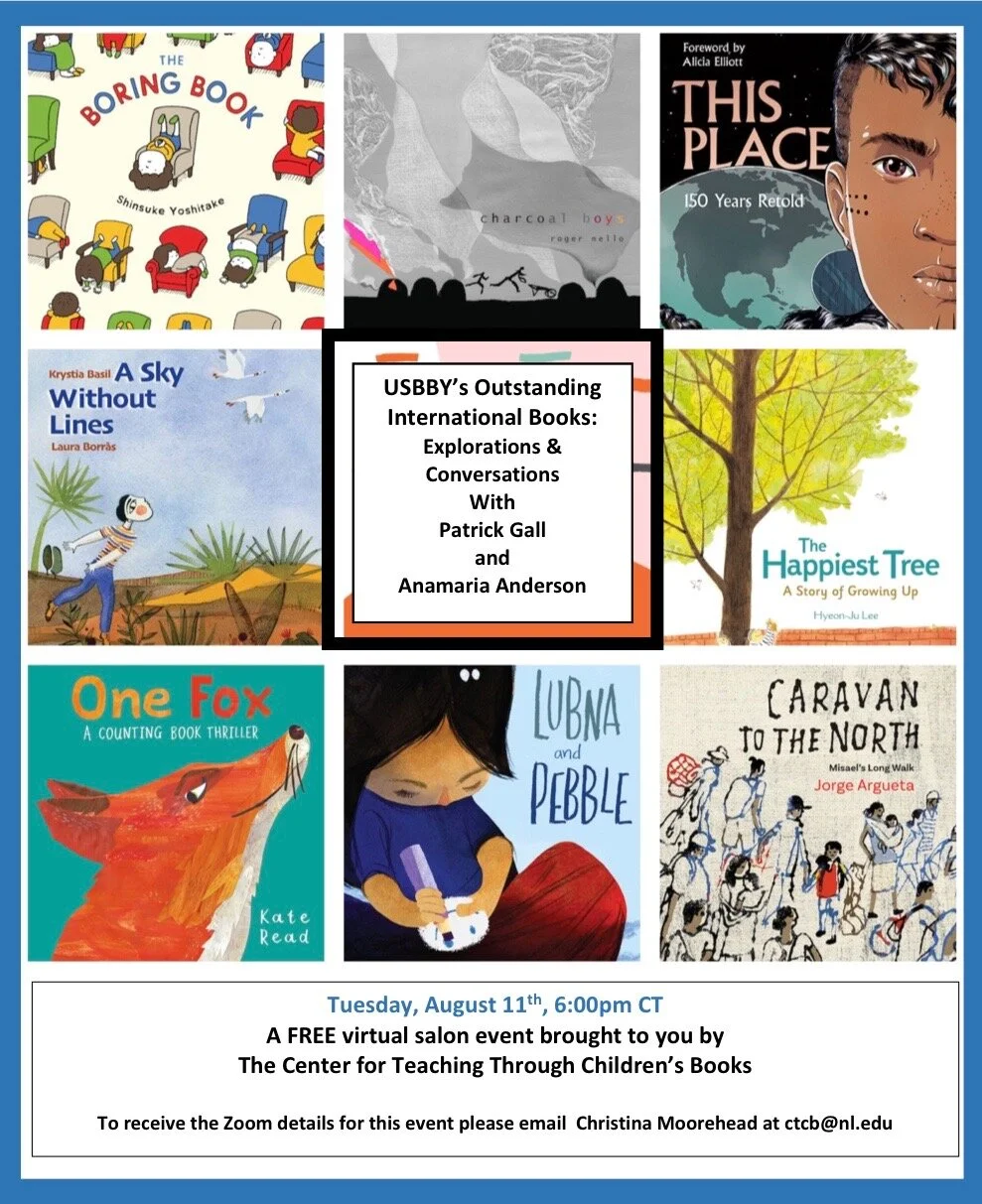One of a creator’s great joys—and challenges—are opportunities for creative collaboration. In-person collaboration certainly involves the complexities of sharing space and materials, negotiating big decisions and small. However, once the lovely waters of collaboration have been braved, the rewards are always well worth the work. Along the way, new friendships are often forged, and with them the promise of future collaborative creations!
But what does creative collaboration look like when done virtually across distances, specifically in these times of Covid?
Coyote’s Soundbite (Lantana) creators John Agard and Piet Grobler offered their insights on creativity and long-distance collaboration in our August 17th 3rd Tuesday event, moderated by Katherine Cook School Teacher-Librarian, former OIB Committee Chair, and CTCB Friends of the Center member Patrick Gall.
The hour-long conversation began with John Agard’s illuminating reading of a passage from Coyote’s Soundbite, after which John shared his creative goals behind Coyote’s Soundbite, one of which was the hope to infuse a story for children with subtle humor that would also resonate with adults.
The challenge for Piet Grobler was to illustrate John’s story in such a way that stayed true to the many layers of the story—which include representations of a variety of cultural backgrounds and beliefs, feminist sensibilities, and explorations of current environmental and ecological challenges. At the same time, Piet had to create images that would captivate the imaginations of young readers.
Which brought the discussion to how the audience for each book affects how authors and illustrators create. On this point John and Piet, although geographically separated by distance, shared the same vision of the reader being an integral part of the creative process.
The conversation wound back to Coyote’s Soundbite as Piet gave us a peek into how he saved materials from other projects so he could re-use them in the collaged Coyote Soundbite illustrations, bringing together the real-world ecological challenges and the ecological themes raised in the story.
John and Piet’s conversation illuminated how the rewards and outcomes of collaboration can overcome the challenges of being separated by distance —especially during times such as these when in-person collaboration isn’t possible. We hope to see more collaborative creations from John and Piet in the future!
Watch the interview at https://www.youtube.com/watch?v=X0T61yjiikI .






































